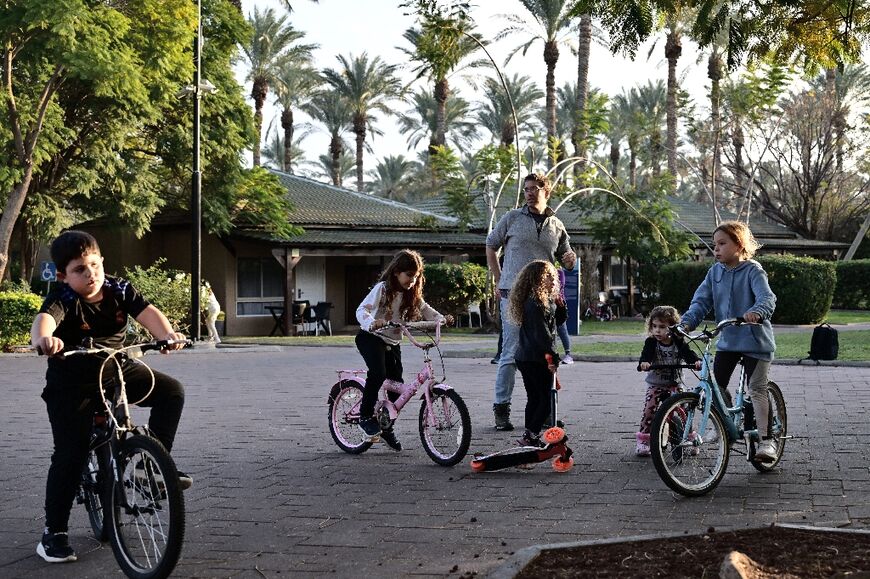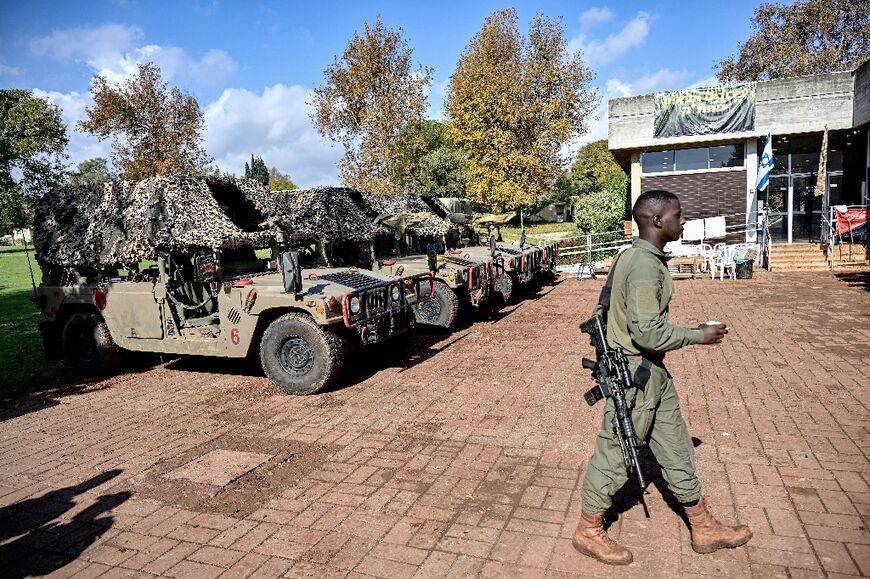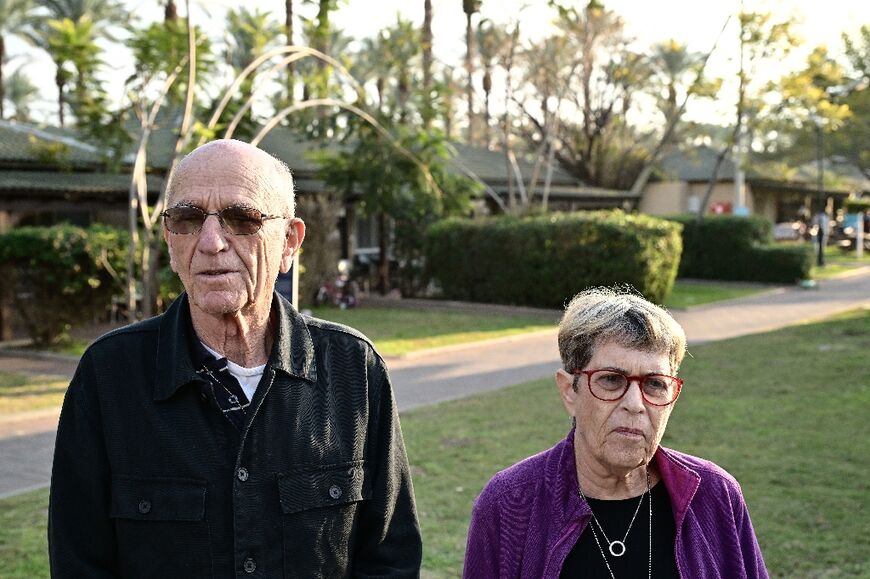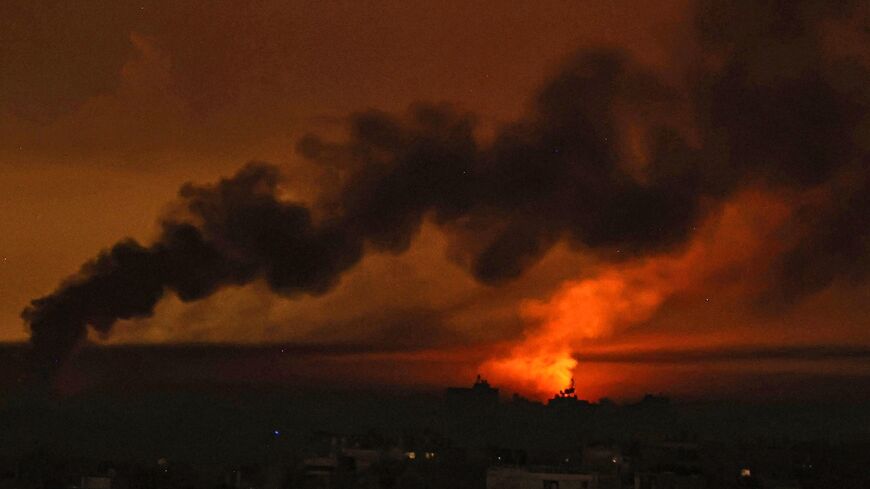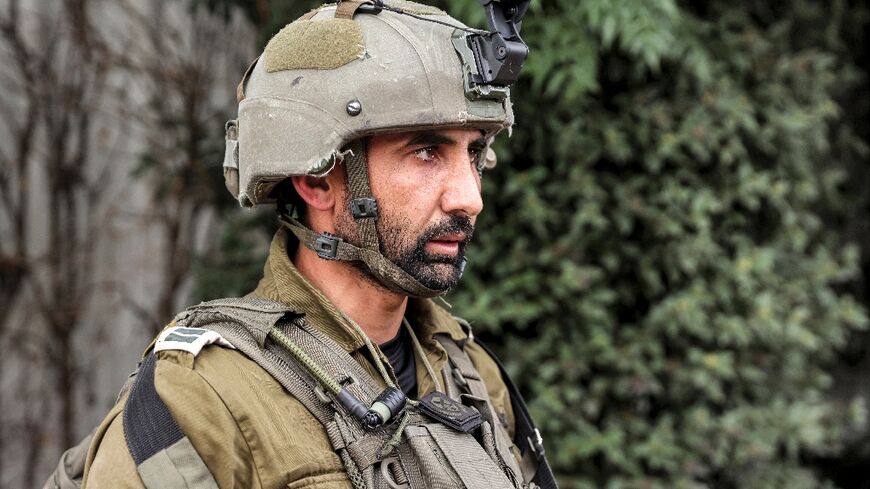Fear of Hezbollah haunts displaced Israelis along Lebanon border
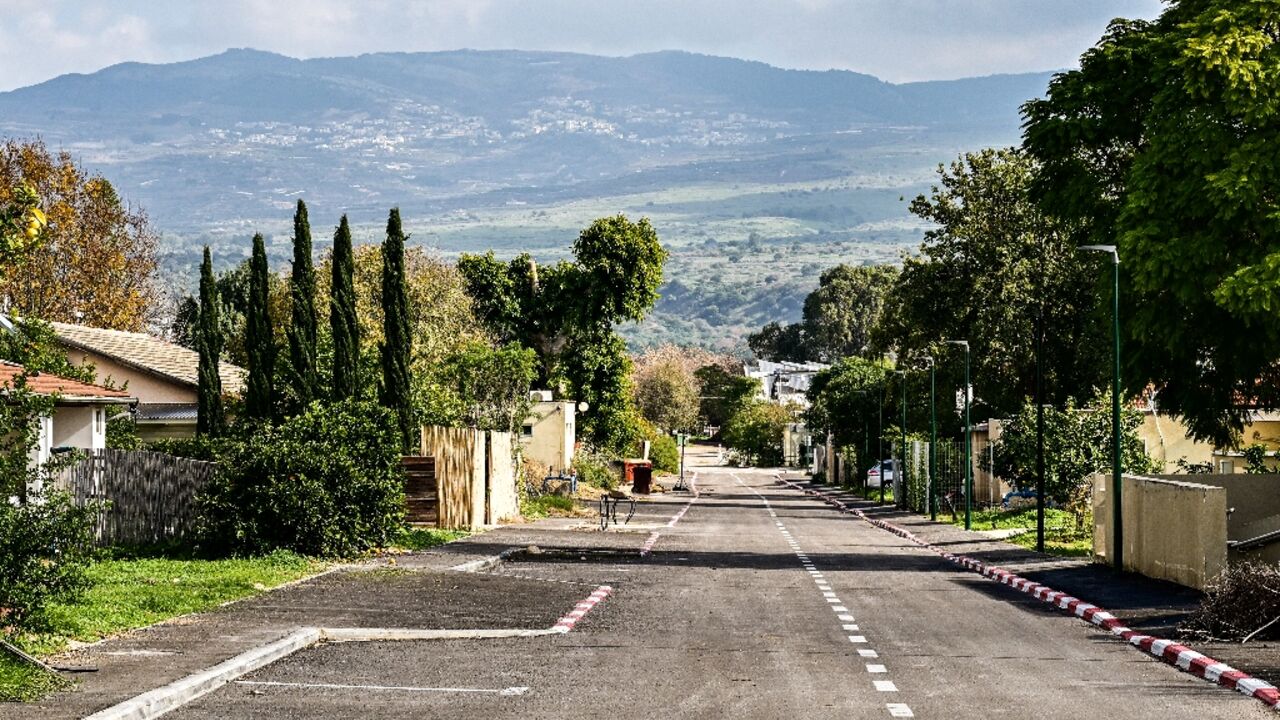
Chen Amit refuses to return to his abandoned kibbutz near Israel's tense northern border with Lebanon, for fear that Hezbollah militants will breach the frontier and take hostages.
Violence has surged in the north nearly three months since war broke out between Israel and Hamas on October 7, with the Israeli army regularly exchanging cross-border fire with Hezbollah, an Iran-backed, Lebanese ally of the Palestinian militant group.
Amit, among hundreds of residents evacuated from the kibbutz community of Dafna, remained worried that Hezbollah fighters had plans to cross into Israel.
Those fears were heightened by a strike on Tuesday that killed Hamas's deputy leader Saleh al-Aruri in the Hezbollah stronghold of south Beirut.
Hezbollah leader Hassan Nasrallah warned that the assassination, widely attributed to Israel, "will not go unpunished".
Amit, 38, said he feared "acts of retaliation" by the militant group.
"Hezbollah is stronger than Hamas" and "military action" would be needed to counter it, he said.
The Shiite militant group is believed to have amassed a considerable weapons arsenal in recent decades.
The last Israel-Hezbollah war, in 2006, killed more than 1,200 people in Lebanon, mostly civilians, and 160 in Israel, mostly soldiers.
- 'Immediate threat' -
In the first days of the Israel-Hamas war, Israeli authorities evacuated tens of thousands of people from northern border areas.
Amit and other Dafna residents were accommodated about 60 kilometres (37 miles) south of their kibbutz in a holiday village on the shore of the Sea of Galilee.
In northern Israel, nine soldiers and at least four civilians have been killed in the surging violence, according to Israeli authorities.
Hezbollah, which conducts daily operations against Israeli soldiers along the border, says it is intervening in support of Gaza's Hamas rulers.
Lior Blum, a 45-year-old English teacher, also did not see himself returning to Dafna with his wife and three children in the near future "unless the problem with Hezbollah is resolved".
If Hezbollah forces retreated from the border, there would not be an "immediate threat" anymore, he said.
"What happened in the south on October 7 made us understand that we cannot have the same happen back home, in the north."
- 'We are afraid' -
The Gaza war erupted after Hamas launched an unprecedented attack against Israel on October 7 that resulted in the deaths of around 1,140 people, most of them civilians, according to an AFP tally based on official Israeli figures.
Hamas also took 250 people as hostages to Gaza. Some 132 are still held by militants in Gaza, including at least 24 believed to have been killed.
Vowing to destroy Hamas, Israel launched a relentless offensive that has reduced vast swathes of Gaza to rubble and claimed at least 22,600 lives, most of them women and children, according to the Hamas-run territory's health ministry.
Inside kibbutz Dafna, which AFP visited as part of a media tour under the supervision of the Israeli army, the streets were largely deserted.
The only signs of life were stray cats and patrolling soldiers.
The sole condition for the return of its residents, said Dafna spokesman Arik Yaacovi, was safety in the border region.
With a pistol tucked in his belt, Yaacovi walked the desolate streets of the kibbutz past army vehicles covered with camouflage nets as explosions rocked in the distance.
"Yes, we are afraid," said Etsy Rave, 76, alongside her 81-year-old husband Uzi.
But she said she still intended to return to Dafna as soon as possible even if the situation did not change.
"The kibbutz is a part of us," she said.


